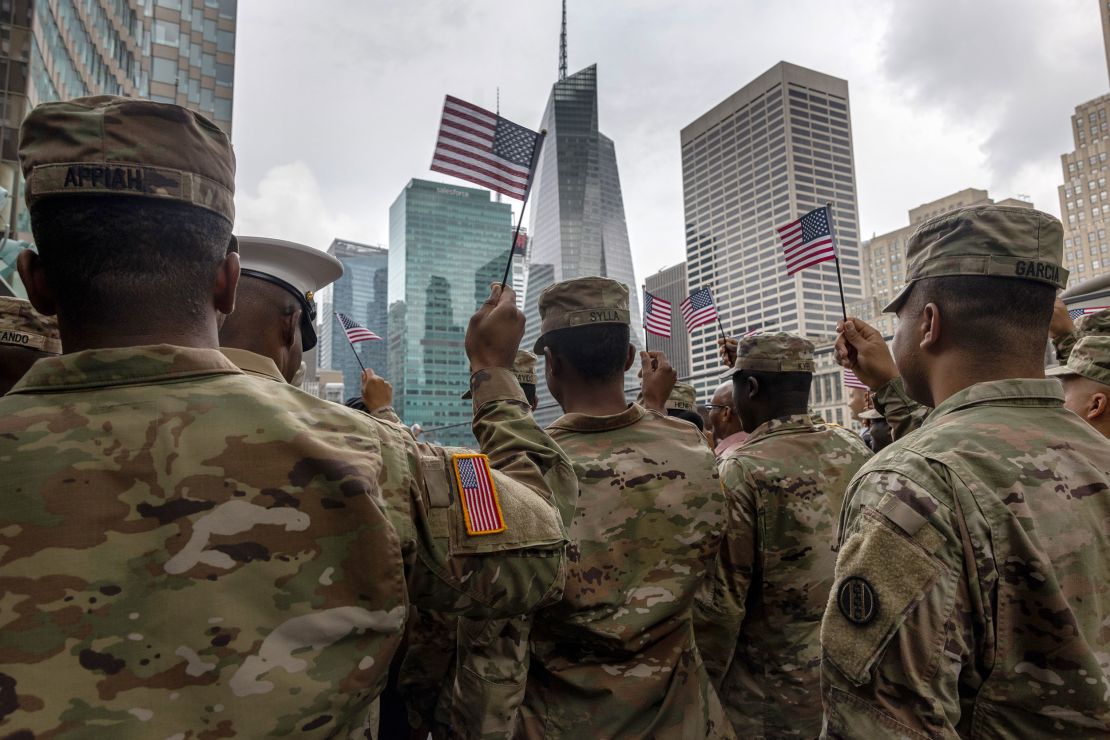After his two deployments to Iraq and despite falling into legal trouble, Marlon Parris learned the US government was not pursuing deportation proceedings against him.
The letter had been a welcome assurance some six months before President Donald Trump’s 2016 election that the Department of Homeland Security and its Immigration and Customs Enforcement bureau didn’t intend to send the US Army veteran back to his native Trinidad and Tobago, even after he pleaded guilty and served prison time for felony conspiracy to distribute cocaine as part of a sophisticated, big-money cocaine ring.
Since Parris had come to the US as a child in 1997, he had been a lawful permanent resident. As a soldier, he sought full citizenship, a benefit military recruiters often tout to entice foreigners. But his deployments, his wife told CNN, prevented him from seeing the process through, another common obstacle noncitizen service members face.
During his years in the Army, Parris was among the first teams sent overseas in Operation Iraqi Freedom, then returned to Iraq two years later, according to his wife and military records. He earned awards, including a service medal for the global war on terrorism and one for good conduct.
Parris, who has suffered from post-traumatic stress disorder, figured immigration officials’ letter in 2016 – and his green card renewal the following year – meant he “was given full clearance to basically live life as normal,” said his wife, Tanisha Hartwell-Parris, an American citizen.
But two days after Trump retook the White House this year on promises of tightening America’s borders and expelling violent criminals, Parris found himself at a red light in his Arizona neighborhood, surrounded by unmarked SUVs.






